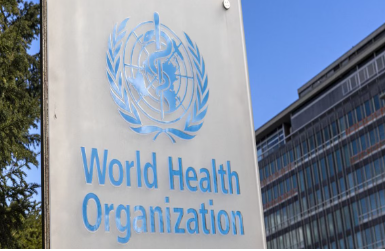India’s Vaccine Regulatory System Declared ‘Functional’ by WHO
India’s vaccine regulatory system was evaluated by international experts from the World Health Organization (WHO). The evaluation confirmed that India meets the WHO’s standards for an effective vaccine regulatory system. This recognition highlights India’s important role in the global pharmaceutical industry, especially in the production of vaccines.
Overview of the WHO Assessment
The WHO team visited India from September 16 to 20, 2024, to examine the country’s vaccine regulatory system. They focused on key areas like safety, effectiveness, and quality of vaccines, which are essential factors for any country involved in vaccine production. The evaluation used the Global Benchmarking Tool (GBT), a system developed by the WHO to measure how well a country’s regulatory system works.
India’s vaccine regulatory system was rated as Maturity Level 3, which means it performs well in several critical areas. This level is a sign of a well-functioning regulatory system that can ensure the quality of vaccines produced and used in the country.
Key Areas Evaluated by WHO
The WHO experts looked at different parts of India’s regulatory system, including:
General Overview of the National Regulatory Authority (NRA): How the regulatory authority works overall.
Registration and Marketing Authorisation (MA): How vaccines are registered and approved for sale.
Vigilance (VL): Monitoring the safety of vaccines once they are in use.
Market Surveillance and Control (MSC): Ensuring vaccines in the market meet quality standards.
Licensing Establishments (LI): Checking the approval process for vaccine manufacturers.
Regulatory Inspections (RI): Regular checks on vaccine production sites to ensure safety and quality.
Laboratory Testing (LT): Testing vaccines in laboratories to ensure they work properly.
Clinical Trials Oversight (CT): Monitoring clinical trials to ensure they are conducted safely.
NRA Lot Release (LR): Releasing vaccine batches for use after confirming they meet all quality standards.
Global Standards and WHO Prequalification
The WHO Prequalification Programme (PQP) is a global system that ensures vaccines meet high standards of quality, safety, and effectiveness. For a vaccine to be included in the PQP, a country must have a strong and reliable National Regulatory Authority (NRA). India’s achievement of Maturity Level 3 means that its regulatory authority is trusted to maintain the high standards required for vaccines to be used globally.
Future Improvements
While India’s regulatory system has been recognized for its strengths, the evaluation team recommended a plan for continuous improvement. They proposed an Institutional Development Plan, which aims to further strengthen the regulatory system and ensure India remains at the forefront of vaccine production and safety in the future.
This WHO evaluation shows that India is committed to maintaining high standards in vaccine production and regulation. With continuous improvements, India’s Central Drugs Standard Control Organisation (CDSCO) and National Regulatory Authority (NRA) are set to play an even greater role in global health by ensuring the safe and effective supply of vaccines worldwide.
What is Central Drugs Standard Control Organisation (CDSCO)?
The Central Drugs Standard Control Organisation (CDSCO) is India’s main authority for regulating pharmaceuticals and medical devices. Established in 1966, it operates under the Ministry of Health and Family Welfare. CDSCO oversees the approval of drugs, clinical trials, and the licensing of drug manufacturers. It also monitors the safety of medicines, including Ayurvedic and homeopathic treatments. The CDSCO works closely with international bodies like the WHO to ensure that India’s pharmaceutical standards are in line with global practices.
Month: Current Affairs - October, 2024
Category: India Nation & States Current Affairs








